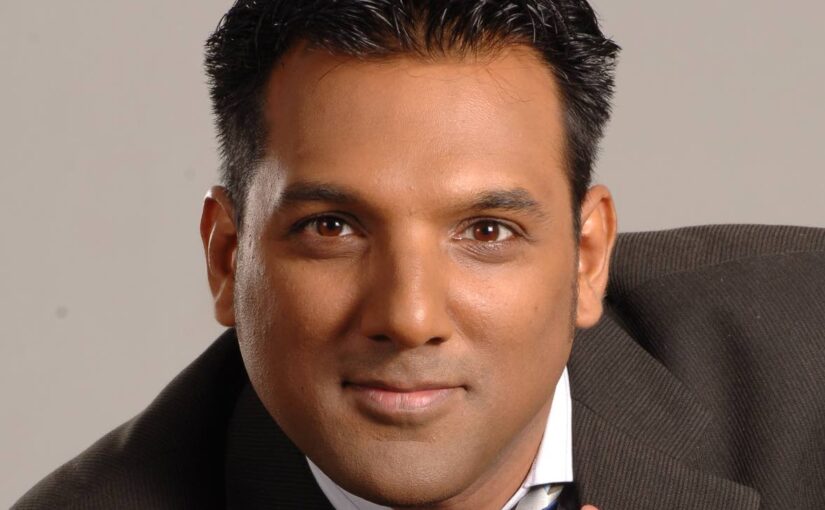PUBLIC Utilities Minister Barry Padarath has defended the government’s refusal to answer questions in Parliament over the firings of the Central...
Vous n'êtes pas connecté
Rubriques :
 - NEWSDAY.CO.TT - A la Une - Hier 03:27
- NEWSDAY.CO.TT - A la Une - Hier 03:27
Answer questions, please
IF YOU never heard of standing order 27(1)(g) you are not alone. This procedural rule has existed in the House of Representatives since time immemorial. The 1961 rules contained it, and the 2014 revisions preserved it. Yet, when the government invoked it at the sitting of June 27 to blank questions about dismissals at the Central Bank and WASA, it was the first time many heard of it. Opposition Whip Marvin Gonzales, for one, suggested he served as a government minister for five years and not once was it invoked. For good reason. This rule is gravely at odds with transparency and accountability. The standing order is obscure. But its consequences are far-ranging. It states: “A minister may decline to answer a question if, in his opinion, the publication of the answer would be contrary to the public interest.” The minister decides what constitutes “public interest.” That is enough reason for this rule to be approached with extreme caution and viewed with suspicion. Politicians can block any query based on their whim or discretion. Defending the move to blank questions on such an arcane basis, Government Whip Barry Padarath said, “The government has to seek the public interest and the matters that arose had to deal with HR matters that could become litigious.” But by this logic, citizens must await hypothetical court hearings, arguments and counter arguments, written submissions, judicial rulings and appeals – possibly all the way to the Privy Council – before it can get an answer to a question like the one posed by Diego Martin North/East MP Colm Imbert: “Can the minister provide the reasons for the termination of the appointment of Dr Alvin Hilaire?” It is strange, to say the least, to serve the public interest in this way. It is frightening ministers did not even bother to outline in the House, in skeletal form, the circumstances that led to their assessments. Even civil servants blanking freedom of information requests say why. The government’s resort to standing order 27(1)(g), contrasts with its recent tabling of the Niquan report and its promise to lay the Clico dossier. However, it is completely in line with wider trends in parliamentary practice. Sittings are more accessible than ever, being broadcast online. But the Parliament’s deeper function of supplying information has deteriorated over the decades. Reports are tabled late. Committees have inadequate tools. The invocation of standing orders to police “relevance” is excessive. If the Red House is useful for anything, it should be asking and answering questions. But even this function has been stymied, with gamesmanship over the strict wording of queries now being escalated to a situation in which standing order 27(1)(g) is seen, by the current administration, as within reach. Democracy demands better. The post Answer questions, please appeared first on Trinidad and Tobago Newsday.
Articles similaires
Costly CEPEP cull
THE GOVERNMENT’S gratuitous decision to terminate – without advanced notice – all contractors of the Community-Based Environmental Protection...
Costly CEPEP cull
THE GOVERNMENT’S gratuitous decision to terminate – without advanced notice – all contractors of the Community-Based Environmental Protection...
PM’s anti-crime ‘Big Five’
Before getting into public expectations for Prime Minister Kamla Persad-Bissessar’s expanded public safety apparatus and the new commissioner of...
PM’s anti-crime ‘Big Five’
Before getting into public expectations for Prime Minister Kamla Persad-Bissessar’s expanded public safety apparatus and the new commissioner of...
PNM threatens legal war over CEPEP firings
OPPOSITION Leader Pennelope Beckles says the termination last week of approximately 10,700 CEPEP workers last week is the tip of the iceberg and...
Mark sides with government, breaks three tied votes in Senate
SENATE President Wade Mark was called upon to break three tied votes in the Senate, in favour of the government, before the Senate passed the...
Mark sides with government, breaks three tied votes in Senate
SENATE President Wade Mark was called upon to break three tied votes in the Senate, in favour of the government, before the Senate passed the...
UNC urges Senate support for PM pension reform
The UNC is urging the independent senators to vote with the government in June 30’s debate in the Senate on the Prime Minister’s Pension...
Constitution Without Conscience? Remembering Emergency, Reimagining Democracy – OpEd
June 25, 2025, commemorates the fiftieth anniversary of one of the most critical and controversial chapters in Indian democracy - the imposition of...
Les derniers communiqués
-
Aucun élément






